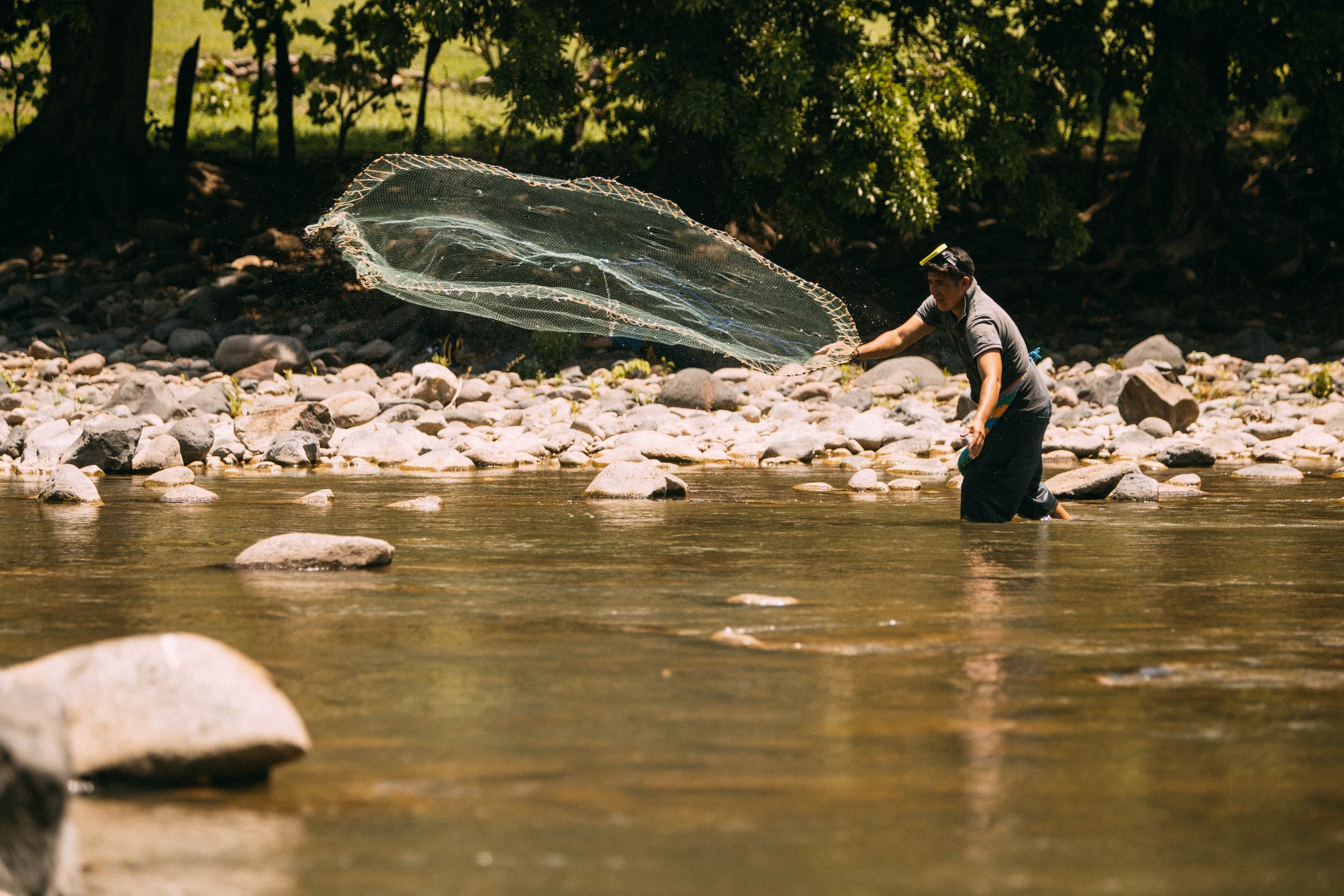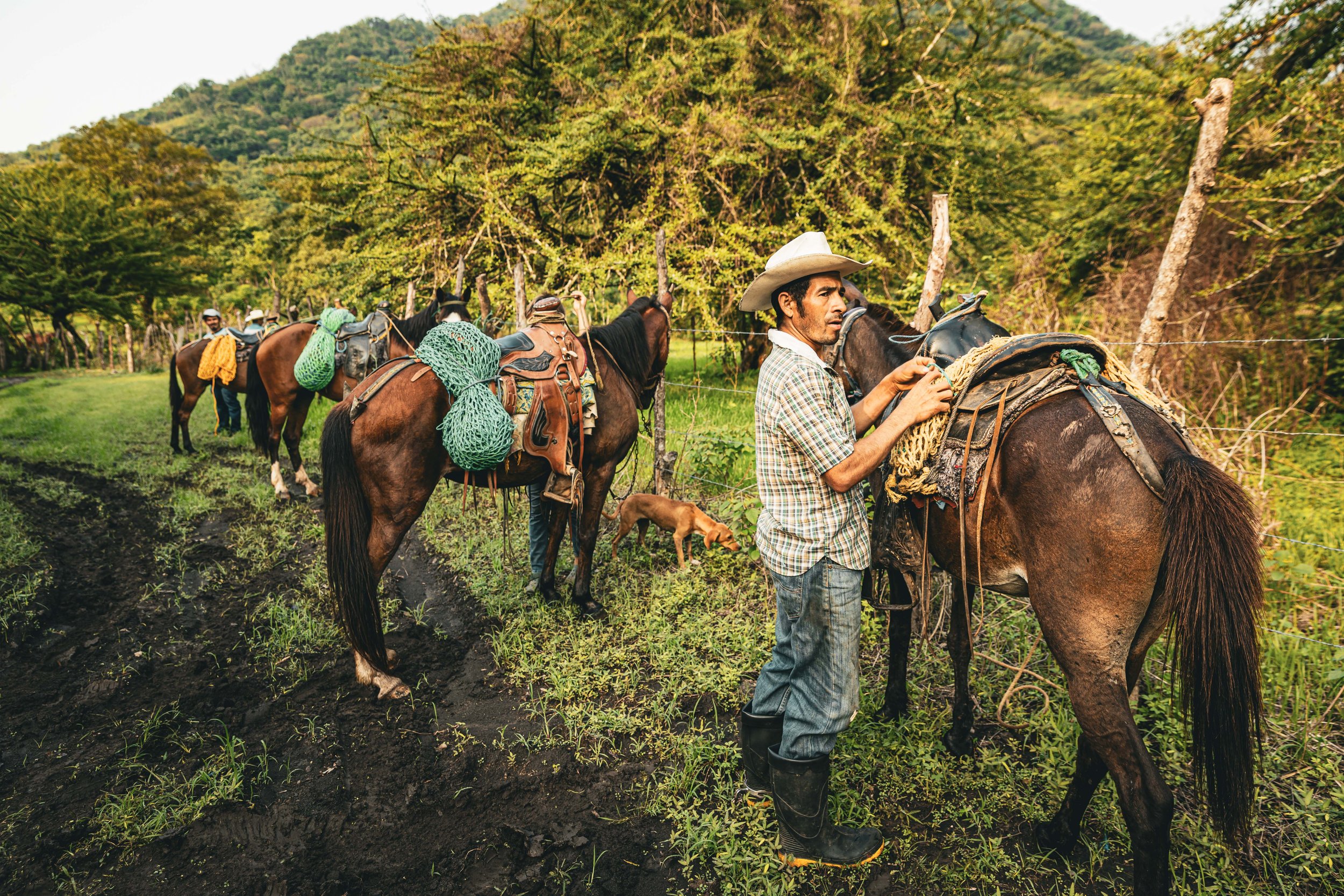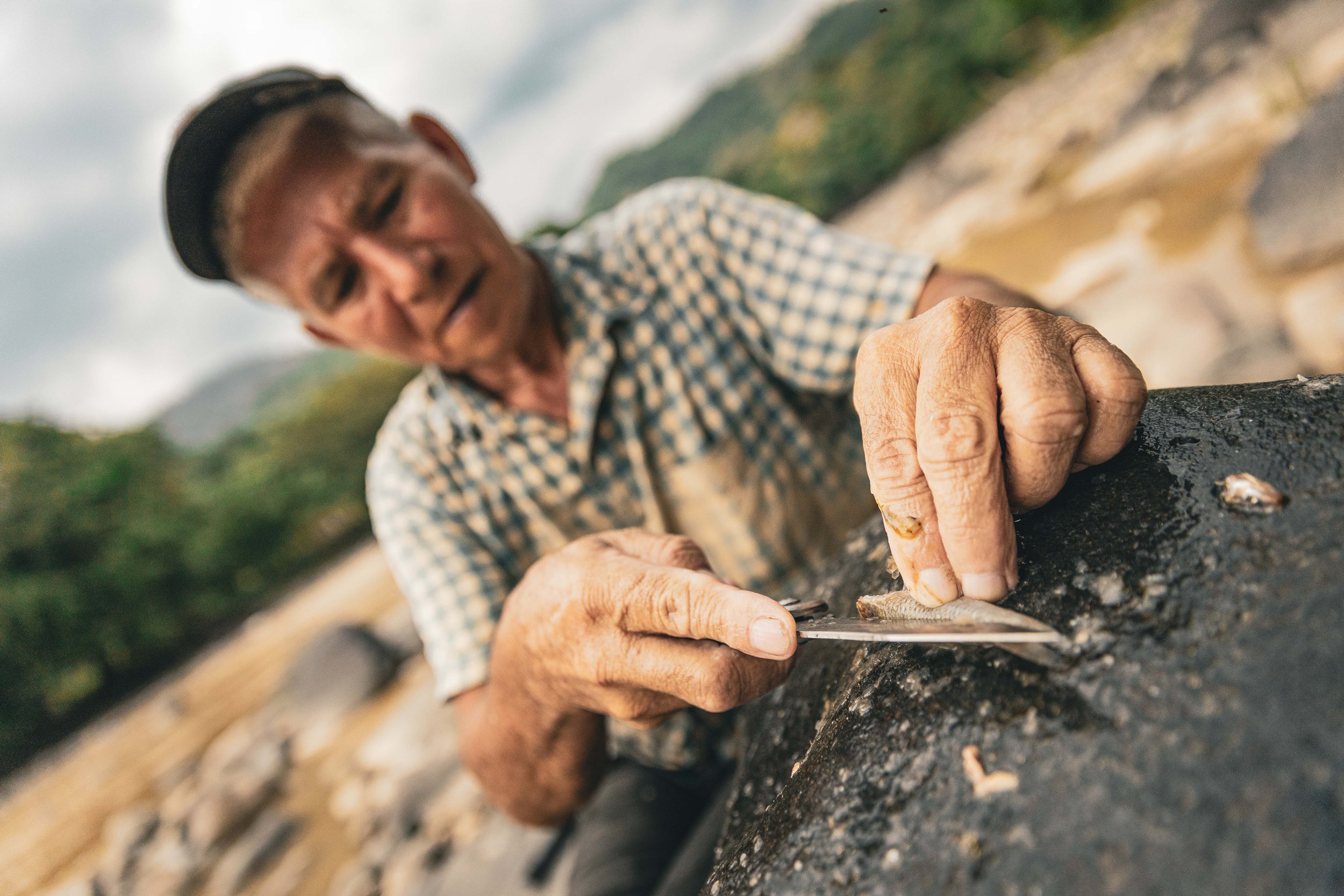Local Economic Reconstruction
Local economic development is an important element of postwar reconstruction. Within the overarching framework of the Surviving Memory in Postwar El Salvador initiative, the team is working with local communities to explore the factors that facilitate the success of local economic reconstruction projects in two districts of Chalatenango and to show their respective level of impact in the Salvadoran context. The economic success factors under study include entrepreneurship, access to resources and capital, and marketable skills, along with non-economic elements such as creativity, cultural and historical identity, resilience, and traditional/Indigenous knowledge. We also include the effect of environmental elements such as natural/touristic resources and geographic location. The goal of the research is to contribute to local economic development through academic knowledge that demonstrates that tangible and intangible heritages in post-conflict zones have a high probability of success despite all the barriers encountered.
Activities
The collaborative team is working on the identification and analysis of factors that promote the success of small enterprises in the districts of San José Las Flores and Las Vueltas. This activity includes a series of training workshops for micro and small entrepreneurs in these districts and will culminate with the academic and popular dissemination of the research findings.
Background: Local Economic Reconstruction
Although more than thirty years have passed since the Peace Accords were signed in 1992, the legacy left by the armed conflict (1980-1992) means that El Salvador remains a fragile country in social, political, and economic terms. With a geographic area of 21,000 square kilometers, a population of 6.2 million, and scarce water resources, the country struggles to provide a decent livelihood for all its citizens, ranking 116 out of 187 countries according to the UN Human Development Index 2015. Since the signing of the Peace Accords, successive governments in this Central American nation have sought ways to develop the country through trade openness and the promotion of foreign investment. As a result of this economic policy, no less than ten transnational mining companies began to explore the mountainous and forested areas in the northern part of the country, near where many of the battles and massacres took place during the armed conflict. In response to this increase in mining activity, civil society organizations expressed their concerns about food sovereignty, environmental degradation, social division, and the disregard for commemorative sites and historical memory. The pressure exerted by civil society organizations led to a government prohibition on mining exploration and exploitation in early 2017. Although this measure has effectively halted mining projects in the northern part of the country, civil society is still in the process of seeking sustainable local economic reconstruction activities that rely on the unique environmental attributes of the region and the difficult legacy that its inhabitants and communities have inherited.
Why is local economic reconstruction difficult after an armed conflict? What factors facilitate success among small entrepreneurs in post-conflict areas? How is tangible and intangible heritage used to foster local economic development? Can post-conflict historical memory hinder the success of small enterprises? In the past, to address some of these questions, specialized groups of academic researchers in the field of sustainable heritage and historical memory studies have conducted successful studies of local economic reconstruction in post-conflict areas. For example, Hall (2000), Hampton (2005), Fotopoulou (2017), Ikonomou (2017), Aliferi (2017), and Legner (2018) have analyzed cases that include tangible and intangible heritage in post-conflict zones and have concluded that there are a wide variety of factors that determine the success of local economic reconstruction. The range of factors goes from the level of entrepreneurial initiative of merchants in certain territories to the levels of financing and the political will of stakeholders in local economic development. Although these findings are valid for international cases, it is unknown to what extent they are relevant in the case of El Salvador. This research will determine not only the relevance of the previously identified factors but also analyze which of these are the most important for the case studies.
Researchers
Dr. Vladimir Pacheco Cueva is an associate professor at the School of Culture and Society at Aarhus University (Denmark). His academic research includes the socio-economic impacts and governance of non-renewable resource extraction in the Arctic and the Global South. Prior to his current position, Vladimir served as a researcher at the Foundation for Cooperation for Development, the Center for Social Responsibility in Mining, and the consulting firm WorleyParsons (Australia). Vladimir began his research career at the University of the South Pacific (USP) in Fiji, where he specialized in microfinance studies in Oceania.
Chiara Bresciani is an anthropologist, researcher, and doctoral candidate at Aarhus University (Denmark). She has worked in indigenous and rural areas in southern Mexico since 2011, researching topics of identity and Indigenous worldview, tradition, resilience, and cultural change during political conflicts; she has also addressed the social impact of alcohol consumption.
Alain Carretero has transdisciplinary training and professional experience in biology and anthropology. Alain holds a master’s degree in ethnobiology from Aarhus University (Denmark) and has carried out projects in Bolivia and Denmark. Alain will contribute to the rescue and documentation of traditional knowledge and the use of wild native plants in communities in the department of Chalatenango. Additionally, he will identify native plants with potential for commercial use.



